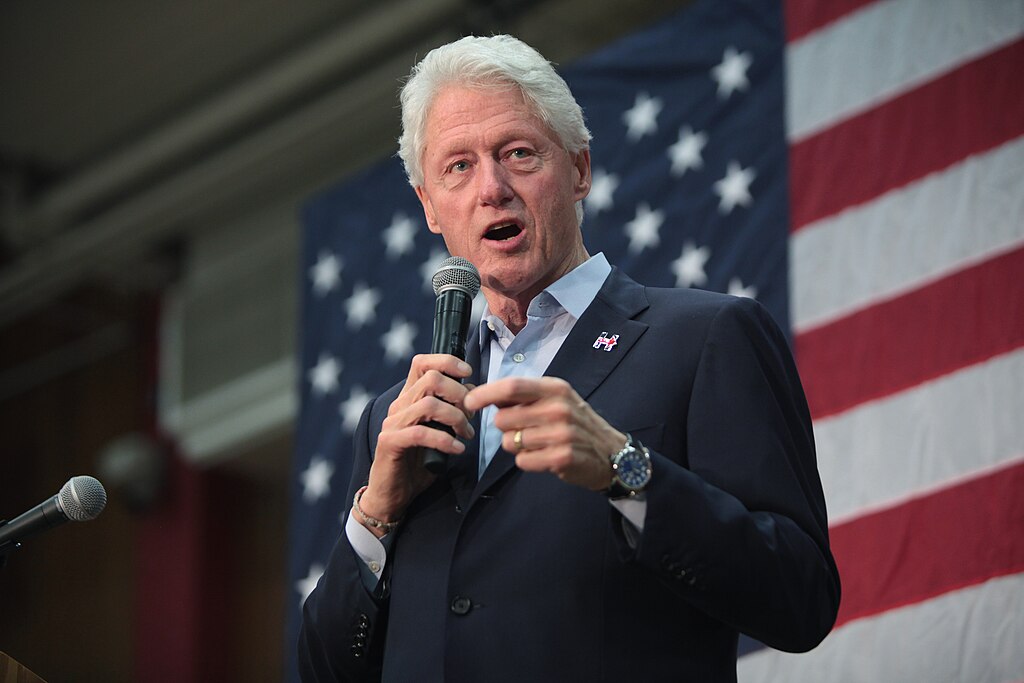pcoming election shaping up to be heavily focused on job creation, inflation, and the national debt. His remarks seem to reflect a broader acknowledgment of the economic growth seen during Trump’s term, driven by tax cuts, deregulation, and policies aimed at boosting the private sector. Despite criticisms of Trump’s economic policies, his administration saw low unemployment and a robust stock market prior to the COVID-19 pandemic.
However, economists and political analysts caution that Clinton’s statement oversimplifies a complex issue. “The economic gains during Trump’s term were significant, but they were also part of a longer trend from previous administrations,” said Dr. Julian Matthews, an economist at the Brookings Institution. “We need to consider the impacts of tax cuts and deregulation, which had short-term boosts but longer-term consequences, particularly on income inequality.”
Bill Clinton has yet to comment further on his remarks, though some within his camp have suggested that his comments were aimed at encouraging bipartisan dialogue rather than endorsing Trump’s entire economic policy. Clinton, known for his own era of economic prosperity, has often spoken about the importance of bipartisan cooperation in building a stable economy.
As reactions continue to unfold, Clinton’s unexpected approval of Trump’s economic period has added fuel to the ongoing debate over which party holds the strongest economic platform. Whether his comments will influence the dialogue as the 2024 election approaches remains to be seen, but for now, they have reignited conversations about the intersection of economic policy and political loyalty.



 Germany and China Reaffirm Open Trade and Strategic Partnership in Landmark Beijing Visit
Germany and China Reaffirm Open Trade and Strategic Partnership in Landmark Beijing Visit  Australian PM Calls Alleged Western Australia Terror Plot “Deeply Shocking” After Arrest
Australian PM Calls Alleged Western Australia Terror Plot “Deeply Shocking” After Arrest  Zelenskiy Urges Change in Iran After U.S. and Israeli Strikes, Cites Drone Support for Russia
Zelenskiy Urges Change in Iran After U.S. and Israeli Strikes, Cites Drone Support for Russia  UK Accepts U.S. Request to Use British Bases for Defensive Strikes on Iranian Missiles
UK Accepts U.S. Request to Use British Bases for Defensive Strikes on Iranian Missiles  HHS Adds New Members to Vaccine Advisory Panel Amid Legal and Market Uncertainty
HHS Adds New Members to Vaccine Advisory Panel Amid Legal and Market Uncertainty  Trump to Address Nation as U.S. Launches Strikes in Iran, Axios Reports
Trump to Address Nation as U.S. Launches Strikes in Iran, Axios Reports  Trump Says U.S. Combat Operations in Iran Will Continue Until Objectives Are Met
Trump Says U.S. Combat Operations in Iran Will Continue Until Objectives Are Met  Trump Floats Ted Cruz for Future U.S. Supreme Court Nomination
Trump Floats Ted Cruz for Future U.S. Supreme Court Nomination  Pentagon to Halt Ivy League Programs for U.S. Military Officers Starting 2026
Pentagon to Halt Ivy League Programs for U.S. Military Officers Starting 2026  Trump Warns Iran as Gulf Conflict Disrupts Oil Markets and Global Trade
Trump Warns Iran as Gulf Conflict Disrupts Oil Markets and Global Trade  Pentagon Leaders Monitor U.S. Iran Operation from Mar-a-Lago
Pentagon Leaders Monitor U.S. Iran Operation from Mar-a-Lago  Macron Urges Emergency UN Security Council Meeting as US-Israel Strikes on Iran Escalate Middle East Tensions
Macron Urges Emergency UN Security Council Meeting as US-Israel Strikes on Iran Escalate Middle East Tensions  Russia Signals Openness to U.S. Security Guarantees for Ukraine at Geneva Peace Talks
Russia Signals Openness to U.S. Security Guarantees for Ukraine at Geneva Peace Talks  Trump Orders Federal Agencies to Halt Use of Anthropic AI Technology
Trump Orders Federal Agencies to Halt Use of Anthropic AI Technology  Pakistan-Afghanistan Tensions Escalate as Taliban Offer Talks After Airstrikes
Pakistan-Afghanistan Tensions Escalate as Taliban Offer Talks After Airstrikes  Middle East Conflict Escalates After Khamenei’s Death as U.S., Israel and Iran Exchange Strikes
Middle East Conflict Escalates After Khamenei’s Death as U.S., Israel and Iran Exchange Strikes  U.S. Lawmakers Question Trump’s Iran Strategy After Joint U.S.-Israeli Strikes
U.S. Lawmakers Question Trump’s Iran Strategy After Joint U.S.-Israeli Strikes 































